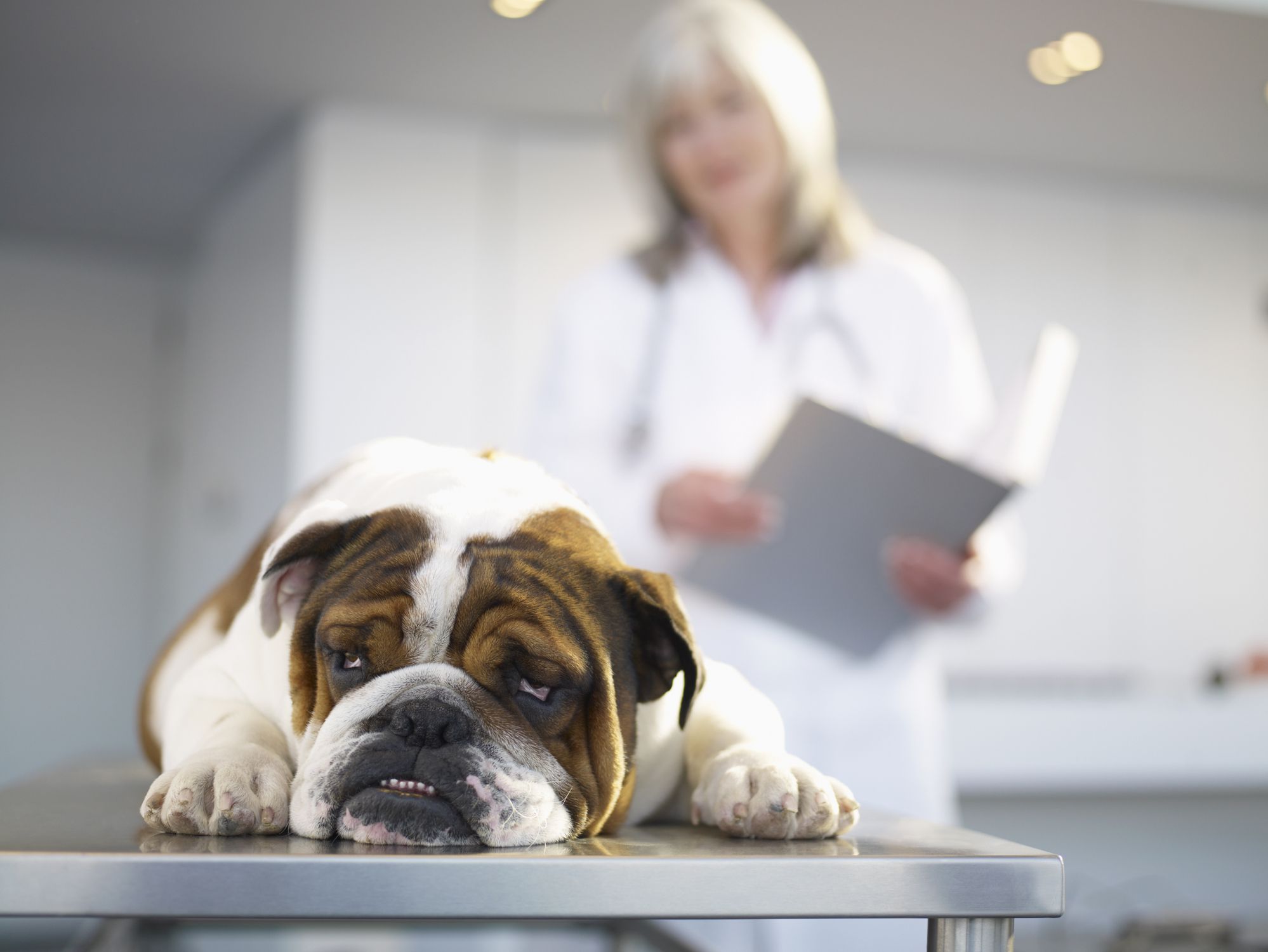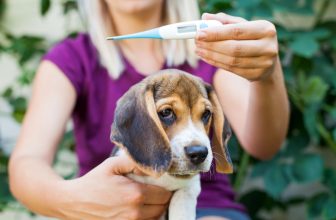
If your dog has a habit of eating foreign objects from around the house, you’re not alone. This is a common behavior in many dogs, with serious consequences. Bowel obstruction in dogs can quickly escalate to life-threatening emergencies. Know the signs and causes, so you can get the best treatment and learn how to prevent this emergency.
What is a bowel obstruction in dogs?
Bowel obstructions occur when a dog’s stomach becomes partially or fully blocked, so food or water cannot pass through your pup. As a result, dogs become dehydrated and malnourished. In severe cases, bowel obstructions can cause electrolyte imbalances and permanent damage or perforation of the intestines.
Common causes of bowel obstruction in dogs
Common household items cause bowel obstructions in dogs. These include:
- Socks and underwear
- Bones
- Corn cobs and fruit pits
- String
- Floss
- Tampons
Aside from ingesting household items, bowel obstructions can stem from:
- Intestinal masses
- Severe intestinal inflammation
- Severe constipation
- Intussusception (folding of the intestines)
Signs of bowel obstruction in dogs
Common signs of bowel obstructions include:
- Vomiting
- Diarrhea
- Lethargy
- Loss of appetite
- Weight loss
Dogs with partial obstructions may experience the above symptoms with less severity, or experience the symptoms intermittently.
Treatment for bowel obstruction in dogs
The reason for your dog’s bowel obstruction will dictate his treatment plan.
If you know or are concerned that your dog has ingested a foreign object, or your dog is displaying symptoms of an obstruction, consult your veterinarian immediately!
Bowel obstructions related to foreign objects can sometimes be managed by inducing vomiting. This should only be done under the direct supervision of your veterinary team and immediately after ingestion has occurred. Some dogs, depending on their size and what was ingested, may pass the object naturally.
Your veterinarian may run additional diagnostics, including:
- Physical exam
- Radiographs
- Abdominal ultrasound
- Bloodwork
Often, bowel obstruction cases require surgical intervention. Depending on your dog’s condition, IV fluids and supportive care are given prior to surgery. Your dog will undergo general anesthesia before your veterinarian makes a surgical incision into the intestines to remove the obstruction. They may need to remove portions of dead and necrosed intestinal tissue.
Dogs who ingest foreign objects are often repeat offenders. If your dog has lost some of his intestines or has scar tissue as a result of previous obstructions, treating future obstructions is riskier.
How to help your dog pass obstruction
Some dogs, depending on their size and what was ingested, may pass the object naturally. If your dog’s condition appears stable and non-painful, performing gentle massage can promote healthy movement of your pup’s bowels and overall gut motility, potentially helping to naturally pass the obstruction.
Here is a step-by-step article discussing how to massage your dog to help him poop. If you know your dog ingested something sharp, such as glass, never attempt to help him pass the obstruction. Discontinue the massage session if your dog displays distress or his condition worsens.
Preventing bowel obstruction in dogs
Modify your current lifestyle to minimize future risk.
Tips for preventing bowel obstruction:
- Removing access to trash
- Eliminate bones as treats
- Track when items are missing
- Supervise your dog with toys
- Remove non-food items from your dog’s reach
- Watch for signs and symptoms
Most dogs with bowel obstructions will make a complete recovery, but early intervention is key. Do not ignore signs and do not assume that your pup will pass an obstruction naturally. If your pup has already gone through a bowel obstruction, the biggest means to prevention will be minimizing risk. I hope this does not become your dog’s “thing,” but if it does, these tips may save his life!
<
Credit Source link







